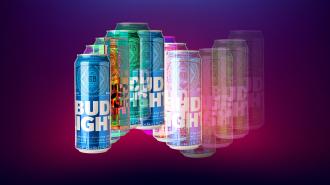A medication that costs less than $1 per dose was able to help people cut back on their binge drinking in a small study. If the results translate to larger, more diverse groups, the medication could be a cheap, simple way to curb dangerous alcohol consumption.
The challenge: Binge drinking — consuming at least 4 or 5 alcoholic drinks in just a couple of hours — is very common in the US, with 17% of adults surveyed in 2018 reporting that they engaged in the behavior at least once in the last month.
While people who binge drink aren’t necessarily addicted, the practice increases their risk of addiction. It also makes them more susceptible to injury, sexual assault, and a number of health problems, including liver disease and mental health issues.
Binge drinking — consuming at least 4-5 drinks in just a couple of hours — is very common in the US.
The medication: If a person with an alcohol addiction wants to quit, their doctor can prescribe naltrexone to help them. This cheap med, taken daily as a pill or monthly as an injection, blocks endorphins, which means drinking alcohol will no longer lead to euphoric feelings of intoxication.
Naltrexone isn’t prescribed to treat binge drinking, though, and people who want to stop overindulging might not want to take a daily medication for something that is only occasionally a problem, especially given that it can cause side effects, such as insomnia and headaches.
The study: To find out whether naltrexone might be able to help curb binge drinking, UC San Francisco researcher Glenn-Milo Santos led a double-blind study in which 120 participants took either the medication or a placebo when they craved alcohol or anticipated binge drinking.
To be eligible for the 12-week-long study, participants had to have self-reported engaging in at least one binge drinking episode weekly for the past three months. They also had to identify as gay or transgender men.
“The study showed sustained reductions in alcohol use patterns 6 months after treatment.”
Santos, G. et al.
The researchers chose to focus on this demographic because people in it binge drink more often than the general public. Gay and transgender men who binge drink are also at greater risk of contracting HIV.
“Therefore, effective interventions to reduce binge drinking among [sexual and gender minority men] may also be important HIV prevention strategies,” the researchers wrote in their study, published in the American Journal of Psychiatry in December 2022.
In addition to taking the medication or placebo, all participants were asked to attend weekly counseling sessions for the duration of the study.
The results: All but 9 participants completed the study, and those in the naltrexone arm reported 26% fewer binge-drinking days, 31% fewer drinks consumed per month, and 17% fewer weeks with any binge drinking.
“Moreover, the study showed sustained reductions in alcohol use patterns 6 months after treatment, suggesting that targeted naltrexone can result in lasting benefits for this population,” wrote the study authors.
“You can not only treat the problem, but prevent the development of the more severe forms of the disease.”
Lorenzo Leggio
Looking ahead: The results of the study suggest that naltrexone could help gay or transgender men combat their binge drinking, but more research is needed to see whether other demographics experience similar benefits.
If they do, naltrexone could be a cheap, straightforward way to help countless people who want to curb their binge drinking.
“If we attack the medical problem right away and early on, you can not only treat the problem but prevent the development of the more severe forms of the disease,” Lorenzo Leggio, a physician-scientist at the National Institutes of Health, told the New York Times.
We’d love to hear from you! If you have a comment about this article or if you have a tip for a future Freethink story, please email us at [email protected].






